Christie Pits
Written by Jamie Michaels
Illustrated by Doug Fedrau
Dirty Water Comics
In the United States, Canada has become shorthand for “a more sane place to live” in the exasperated vernacular of the left. It’s most often evoked in the phrase “if this certain happens, I’m moving to Canada.” And “this certain thing” can be literally anything to do with a victory on the right, depending on the mood of the left-leaning American using the phrase, but the best amongst us at least try to reserve it for instances of, say, Donald Trump being elected to the office of the president.
Keep in mind that this is typically uttered by the same people who for the last several years thought a parade of sure-things was going to save us from our sad little tyrant, from the Supreme Court to the Mueller investigation. So the feeling is, well, nothing in my country can save me from this awful thing, so I guess I’ll count on another country to save me from this awful thing.
My feeling is that Canada doesn’t need that responsibility. Canada has its own problems to deal with, forget about throngs of whiney American liberals packing the borders and swearing they’ll learn more about hockey, really. And holding a nation on a pedestal because you perceive it as “nice” — well, that’s not an entirely nice way to treat any country. You should love Canada on its own terms, and not because you’re convinced it’s a better catch than what you currently have.
Besides, Canada has had its own issues with immigrants in the past. And white supremacy in general.
All this came to mind as I was reading Christie Pits, which recounts a riot in Toronto in 1933 that erupted between 10,000 people. Sparked a group of Nazi supporters called the Pit Gang when they began to harass Jewish and Italian immigrants following a baseball game, the scene turned into a battle royale of improvised weaponry that lasted for six hours and resulted in, among other things, the mayor of Toronto banning the swastika.
But as portrayed by Michaels and Pedrau, this was no sudden conflict and, in fact, the weeks of local enmity between the groups that had been building was etched in hostility through history and across the globe. One part of the air that humans breathed seemed to contain some level of anti-Semitism and in Toronto in 1933, it coalesced into a physical manifestation of mass violence. And so it was always there, in North America, years before World War II, it was not acknowledged by the people breathing it in. Like the sun and the moon and the oceans, it was just something that was there, accepted as natural.
Michaels’ script walks a thin line of non-fiction and dramatization, meticulously crafted from research but shaped in such a way to bring the events alive. Following a group of young Jewish men in the neighborhood at the time, enthused by baseball and boxing, talking politics, pining for cute girls, and doing their best to evade the hostility of local Nazi lovers, Michaels presents a reality where conversation always returns to the place of Jews in the world and in history, and how those connections have direct relevance in their own family lines.
We are taken outside the neighborhood also, shown how the neighborhood came to be by watching events unfold in the Ukraine, 30 years before, as young lives were disrupted by hate and murder, and they fled west to give their future children a chance to live the lives that were seized from them. But we are also taken to other cultural areas, most notably the classroom, where historical anti-Semitism is traced angrily through centuries of so-called classic literature that students are required to read. This reality is dismissed by the professor, who has been breathing it in all his life and cannot see it.
The real challenge the creators faced with Christie Pits was to transform all this into a readable, engaging drama, rather than a fact-driven historical examination of anti-Semitism in western culture or a recounting of local bloodshed caused by anti-Semitism. That’s achieved by creating a living, breathing community, electric in both its tensions and excitement, with much time spent on spirited debate between the characters, and also teasing, arguing, pleading, the real human drama that springs forth from struggle and strips down wider political issues into clunky human ones that compete for attention with romance and fun. Life, even during struggle, is a full spectrum, and it’s the passion of that wide range that keeps people going beyond the hard parts.
These days, too many of these old struggles and hates have been revealed to have not gone away after all, so Christie Pits is a helpful reminder of that hateful thread, and an examination of what a community requires to overcome it.


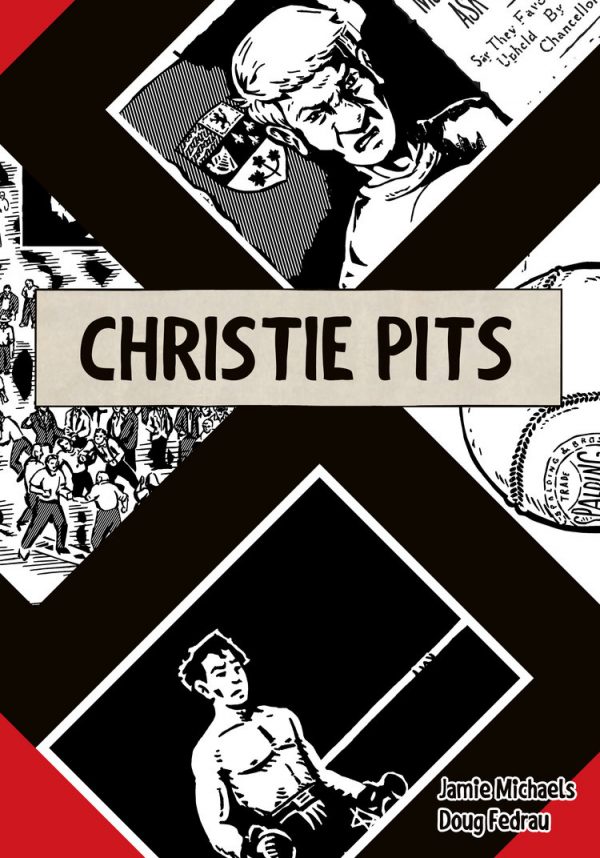
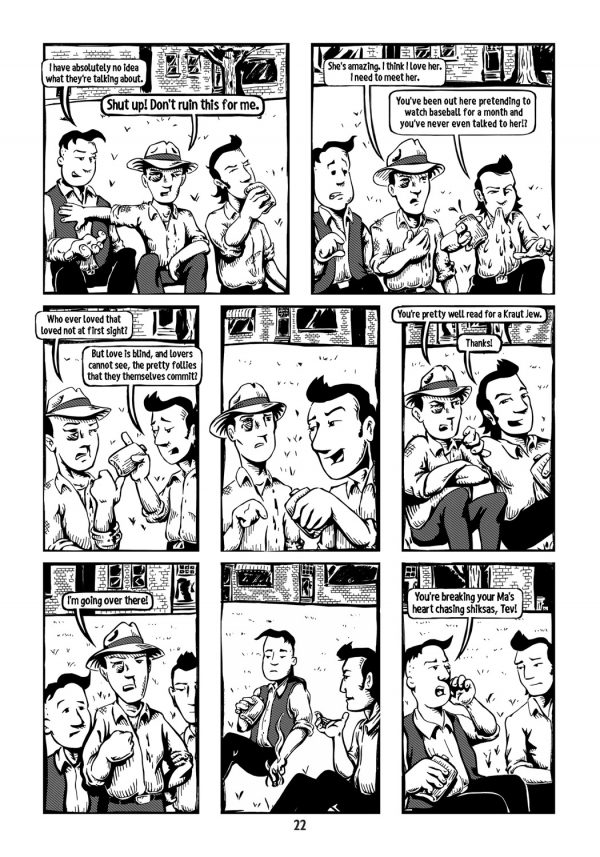
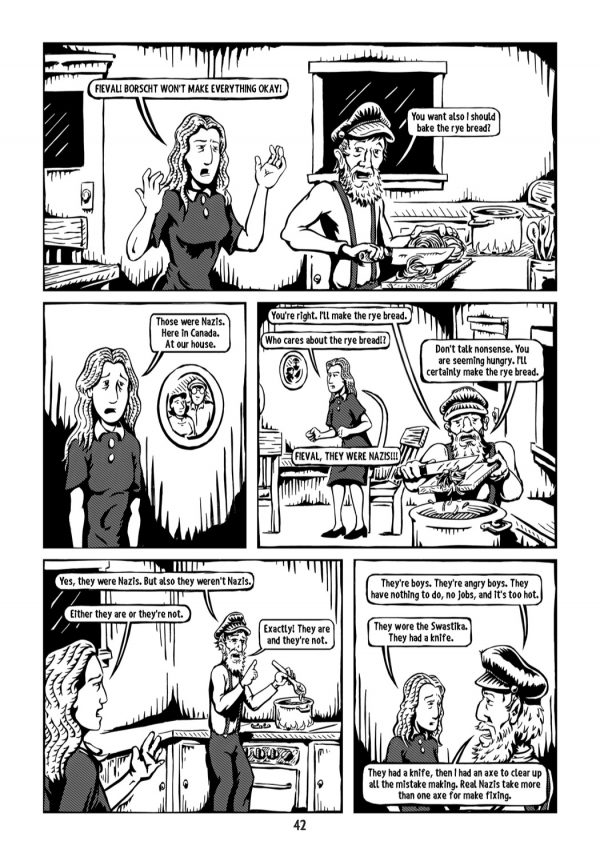
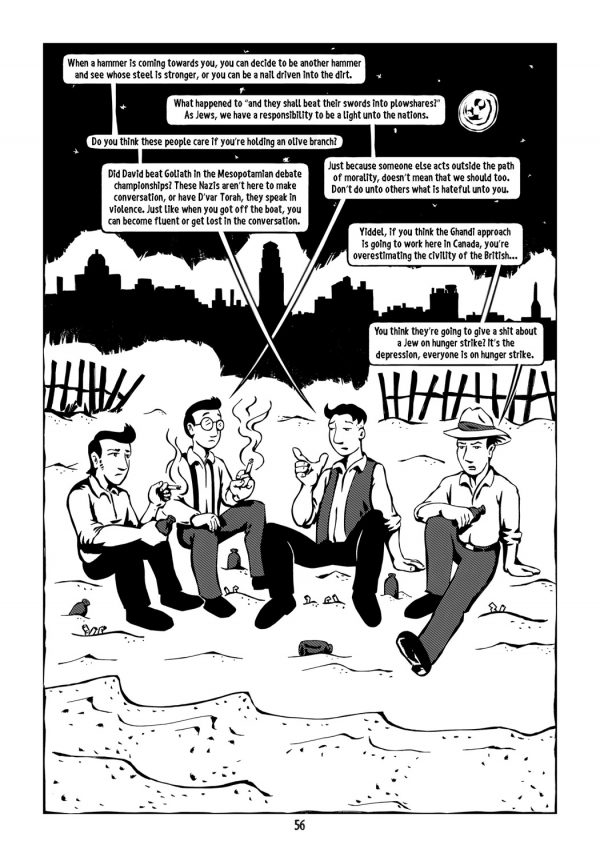
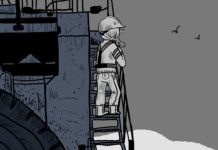





Ugh. Too true, but insightful for the observation
Comments are closed.